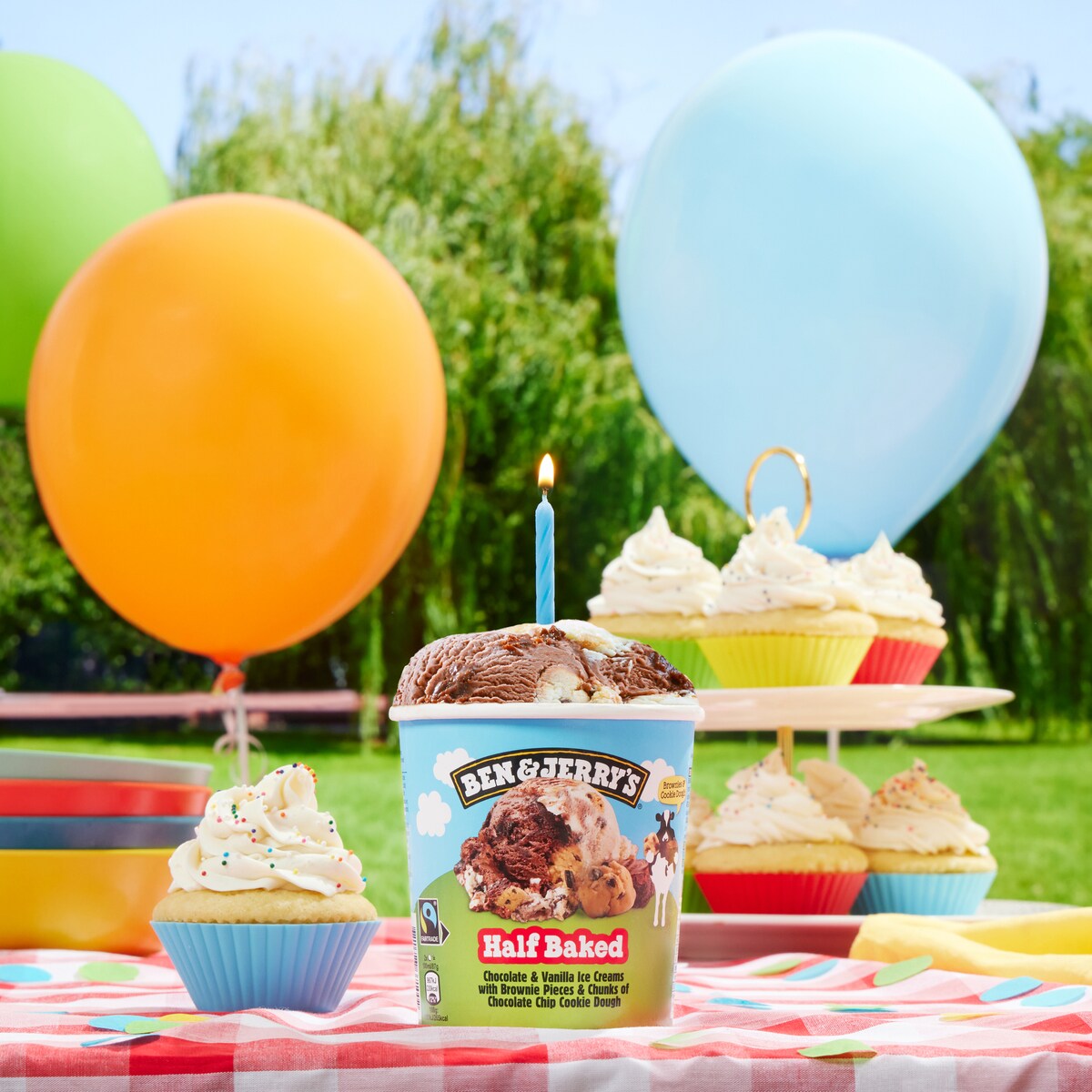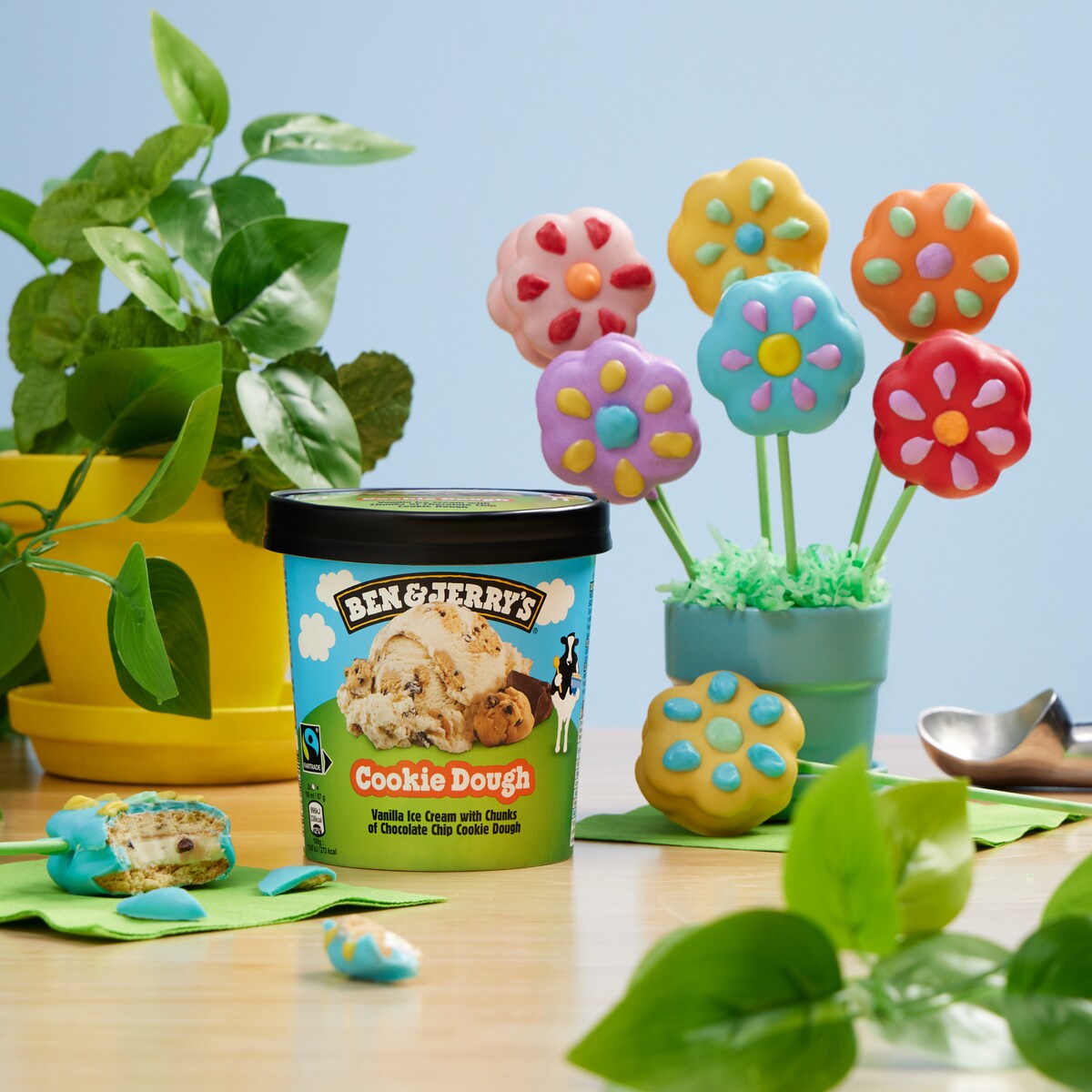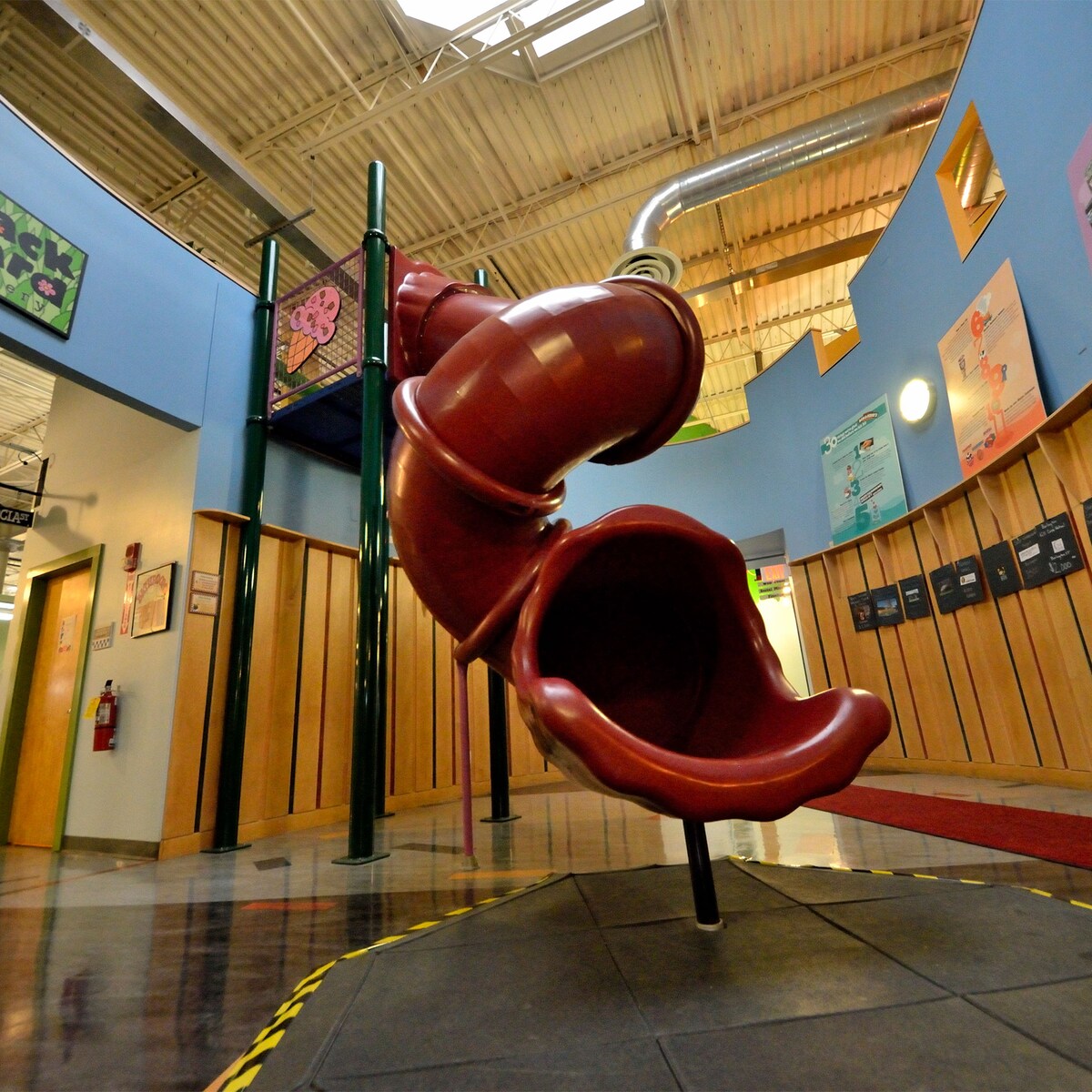April 13, 2016
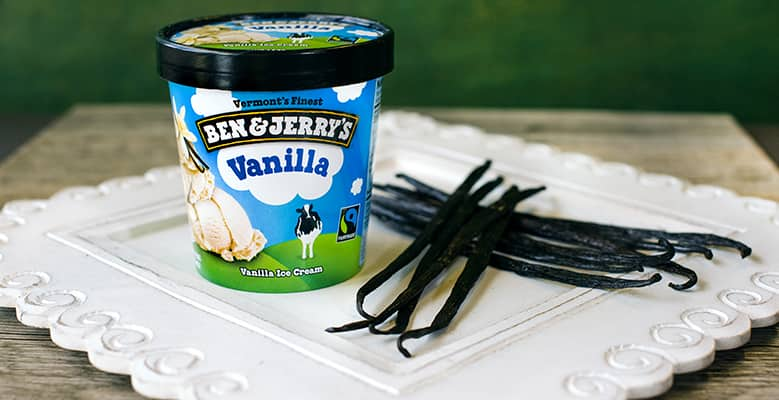
Vanilla!
Yes, trust us, vanilla deserves an exclamation point. What would your favorite Ben & Jerry’s concoctions be without it? It’s not just classic gems like Vanilla and Vanilla Caramel Fudge that rely on this wonder ingredient; no, you’ll even find it in unlikely places, like Chocolate Fudge Brownie and Coffee Coffee BuzzBuzzBuzz.
To us, the importance of vanilla cannot be overstated, and neither can our desire to source the finest, tastiest Fairtrade vanilla on the planet. That makes for the most delicious ice cream, of course, but it also has an additional critically important benefit: helping lift many vanilla farmers and their communities out of poverty.
A FINICKY FLOWER
Vanilla is derived from orchids that originally grew only in Central America. Fun fact: vanilla “pods” or “beans” are actually fruit, a kind of berry.
It wasn’t until the mid-1800s that Europeans began successfully growing vanilla elsewhere in the tropics. There was just one catch: every single flower had to be hand-pollinated. Otherwise, no fruit.
See, there was a tiny bee responsible for pollinating the original orchids in Central America, but that bee doesn’t live anywhere else in the world. For this reason and others, vanilla cultivation and production remain excruciatingly complex and labor-intensive to this very day.
HARD WORK
The vanilla trade is dominated by the country of Madagascar, though it’s an important crop in Uganda and other tropical countries as well. The biggest collective threat vanilla farmers face may well be the broader market preference for cheaper synthetic, or artificial, vanilla. In fact, the “vanilla” you see listed as an ingredient in most foods, drinks, and cosmetics on the shelf today is really synthetic vanilla. (Want the real stuff? Look for labels that say “vanilla extract.”)
So imagine you’re a farmer. Not only do you have to painstakingly hand pollinate every single flower on your land every year and contend with the brutal vagaries of weather and cultivation (ripening, harvesting, fermentation), all of which requires your constant attention. But then, on top of that, you have to worry about a global marketplace that overwhelmingly prefers a much cheaper, essentially fake version of your crop.
Despite the fact that vanilla remains, next to saffron, the most expensive spice in the world, most farmers know nothing but hard work and abject poverty.
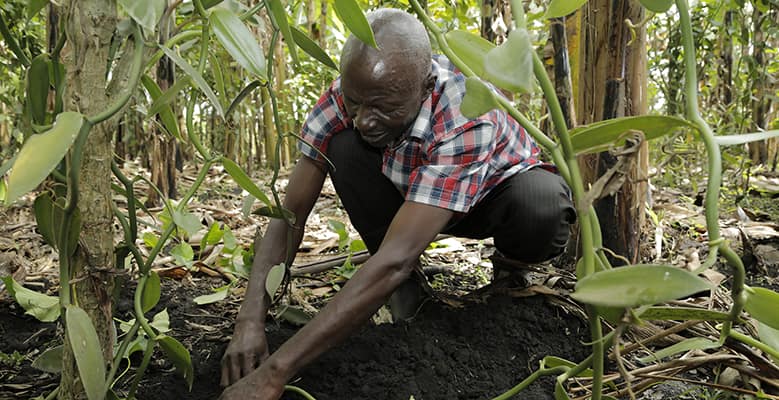
A FAIRTRADE REVOLUTION
One vanilla co-op that we work closely with is the Rwenzori Farmers Cooperative Union in Uganda. The farmers there have been through a lot, including having their land confiscated by the ruthless dictator Idi Amin during the 1970s. When it was returned to them 20 years later, they began working the land in small plots, which resulted in a higher-quality crop but left each farmer more vulnerable. They soon realized that to be successful, they had to join together.
Getting Fairtrade certified has led to stability and prosperity. Vanilla prices tend to swing between boom and bust, but the Fairtrade pricing structure ensures that farmers get a decent profit each year. Many families have been able to start saving money and build brick or cement houses. Most members of the cooperative now also own a mobile phone, which can be a huge benefit in their remote area.
The community decides democratically how to make use of the Fairtrade premium, which is the “extra” money the co-op receives on top of payment for their crop. Because the government-run schools in their region are sub-par, the farmers use the premium to pay private school fees, believing that an improved education will result in their children having opportunities that they never did.
But the premium has had even farther-reaching benefits:
- Prosperity and increased collaboration between and within families have led to a noticeable reduction in domestic violence.
- Women in the village have seen their position improve as they take the lead on more and more issues affecting the community.
- And regular training workshops in agricultural techniques and microfinance, for example, further empower women to make their voices heard.
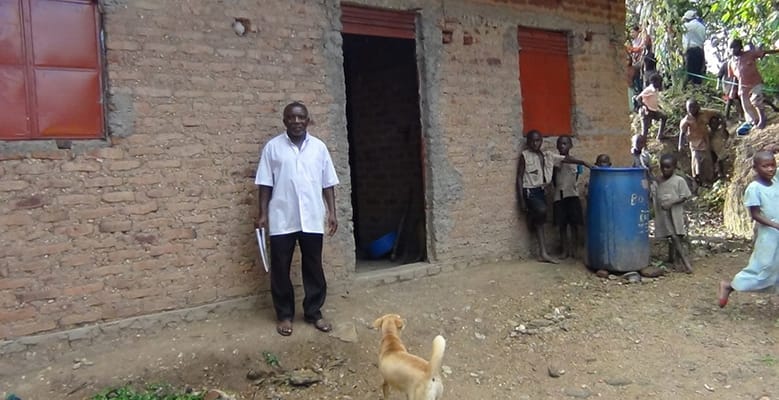
THE FUTURE
The 2,500 members of the Rwenzori Farmers Cooperative Union have seen and experienced firsthand the transformative effects of being Fairtrade certified. And now they’re looking toward the future. Some farmers are even investigating whether they can have their coffee certified as Fairtrade as well. And here at Ben & Jerry’s, we’re continuing to invest in the Rwenzori Farmers Cooperative Union and work with them to improve their productivity, organizational capacity, and environmental impact.
So while we may most often think of vanilla, if we think of it at all, as just one more Fairtrade ingredient in the ice cream you love, farmers in Uganda and elsewhere see it as the path to their families’ happiness and prosperity. Which, if you ask us, makes every scoop taste a whole lot sweeter.
*****
Remember: when you buy products with the FAIRTRADE Mark (the green and blue symbol you see on each of our pints), you're helping small-scale farmers survive, and even thrive, in the often chaotic and overwhelming global marketplace. Picking up Fairtrade Certified products might seem like a small gesture, but it can make a big difference.
